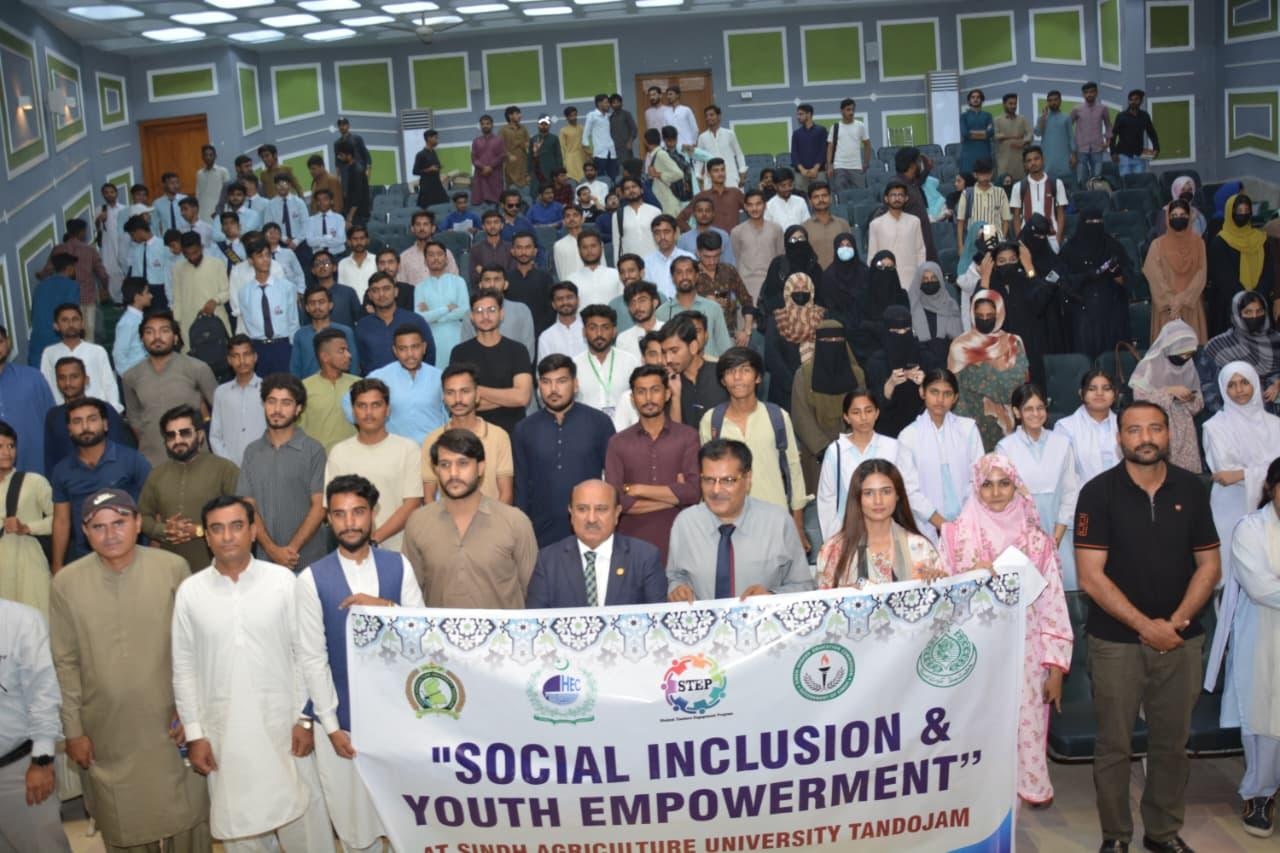Inclusive Growth and Youth Empowerment Key to Sindh’s Sustainable Future, SAU Moot Told
Tandojam (Press Release) Academic leaders and experts at Sindh Agriculture University (SAU) have underscored that social inclusion and youth empowerment are essential pillars for Sindh’s sustainable socio-economic development, urging for greater youth participation in education, innovation, and community-building initiatives.
They were speaking at a seminar titled “Social Inclusion and Youth Empowerment for Sustainable Development”, held at the Dr. A.M. Sheikh Auditorium, SAU, Tandojam. The event was organized under the Students–Teachers Engagement Program with the support of the Higher Education Commission (HEC) Islamabad, Sindh Higher Education Commission, and the Government of Sindh. It brought together students, faculty, civil society representatives, and youth leaders from across the province.
In his keynote address, Vice Chancellor Prof. Dr. Altaf Ali Siyal highlighted that Pakistan’s future hinges on socially inclusive and empowered youth who can drive innovation, peace, and sustainable growth through knowledge and compassion. “Our graduates are the future leaders, innovators, and policymakers. It is our responsibility to equip them with knowledge, confidence, and equal opportunities so they can play a meaningful role in the development of Sindh and Pakistan,” Dr. Siyal stated.
He stressed that social inclusion entails ensuring equal access to education, opportunities, and decision-making for all segments of society, regardless of gender, region, or economic background. He also reiterated the pivotal role of universities in shaping responsible citizens who champion diversity, tolerance, and innovation.
Prof. Dr. Muhammad Ismail Kumbhar, Director University Advancement and Financial Assistance, emphasized that youth empowerment goes far beyond academic qualifications. “Social inclusion is not just about access to education; it is about ensuring that every graduate feels valued, confident, and capable of playing an active role in society,” he remarked.
He added that gender equality, inclusive education for marginalized communities, and youth engagement in decision-making processes are critical for peace and sustainable development. “When youth are empowered socially, economically, and politically, nations prosper — and when they are excluded, societies face instability,” he noted.
Other speakers, including Mr. Aamir Bangash and Mr. Vinod Kumar, stressed that social inclusion combats discrimination and inequality by fostering empathy and civic responsibility among students. They encouraged youth to take part in volunteerism, community service, and innovation-driven projects that contribute to social welfare.
The seminar was attended by a large number of students, faculty members, and representatives of civil society.




Comments (0)